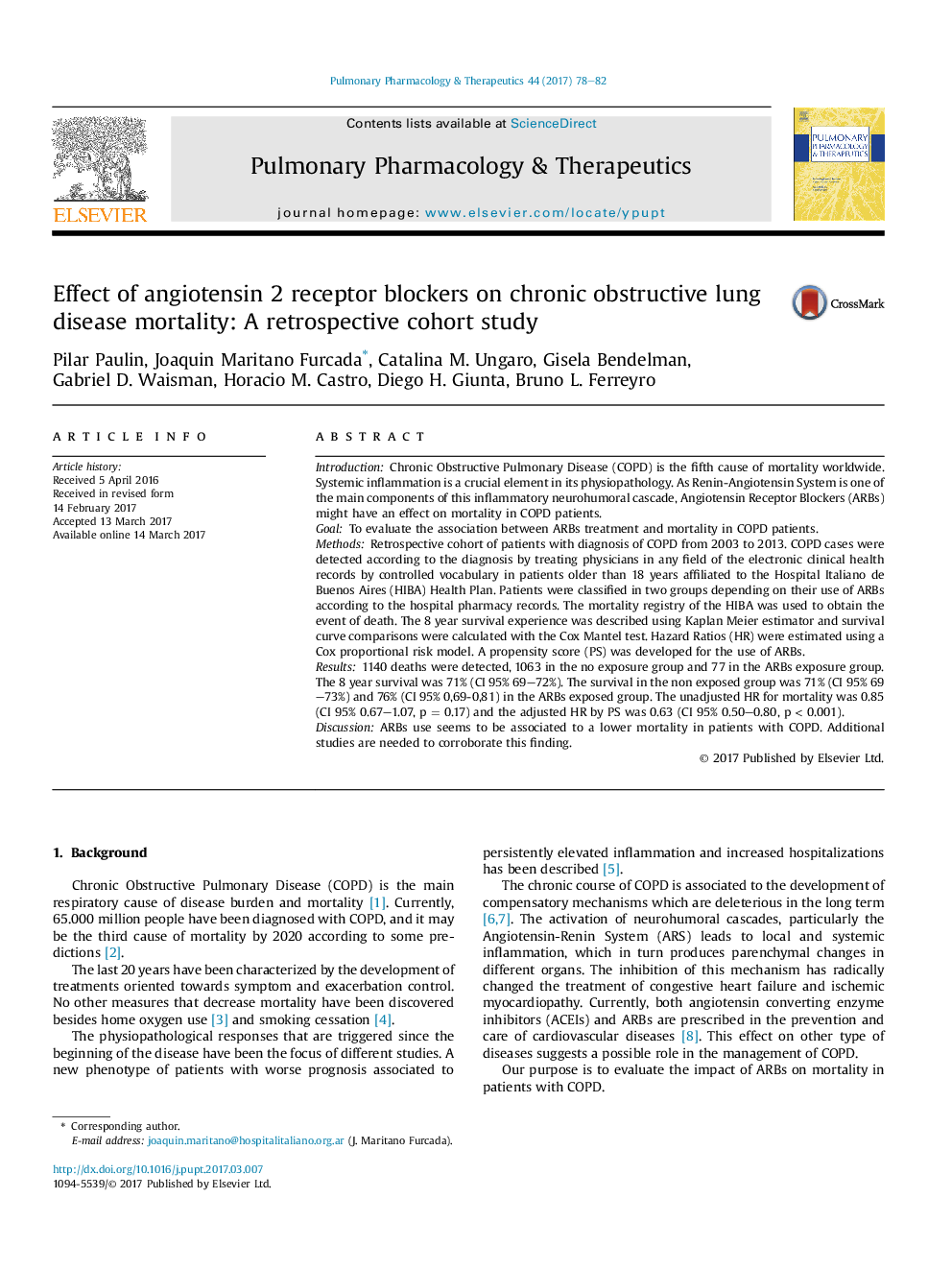| Article ID | Journal | Published Year | Pages | File Type |
|---|---|---|---|---|
| 5558205 | Pulmonary Pharmacology & Therapeutics | 2017 | 5 Pages |
IntroductionChronic Obstructive Pulmonary Disease (COPD) is the fifth cause of mortality worldwide. Systemic inflammation is a crucial element in its physiopathology. As Renin-Angiotensin System is one of the main components of this inflammatory neurohumoral cascade, Angiotensin Receptor Blockers (ARBs) might have an effect on mortality in COPD patients.GoalTo evaluate the association between ARBs treatment and mortality in COPD patients.MethodsRetrospective cohort of patients with diagnosis of COPD from 2003 to 2013. COPD cases were detected according to the diagnosis by treating physicians in any field of the electronic clinical health records by controlled vocabulary in patients older than 18 years affiliated to the Hospital Italiano de Buenos Aires (HIBA) Health Plan. Patients were classified in two groups depending on their use of ARBs according to the hospital pharmacy records. The mortality registry of the HIBA was used to obtain the event of death. The 8 year survival experience was described using Kaplan Meier estimator and survival curve comparisons were calculated with the Cox Mantel test. Hazard Ratios (HR) were estimated using a Cox proportional risk model. A propensity score (PS) was developed for the use of ARBs.Results1140 deaths were detected, 1063 in the no exposure group and 77 in the ARBs exposure group. The 8 year survival was 71% (CI 95% 69-72%). The survival in the non exposed group was 71% (CI 95% 69-73%) and 76% (CI 95% 0,69-0,81) in the ARBs exposed group. The unadjusted HR for mortality was 0.85 (CI 95% 0.67-1.07, p = 0.17) and the adjusted HR by PS was 0.63 (CI 95% 0.50-0.80, p < 0.001).DiscussionARBs use seems to be associated to a lower mortality in patients with COPD. Additional studies are needed to corroborate this finding.
